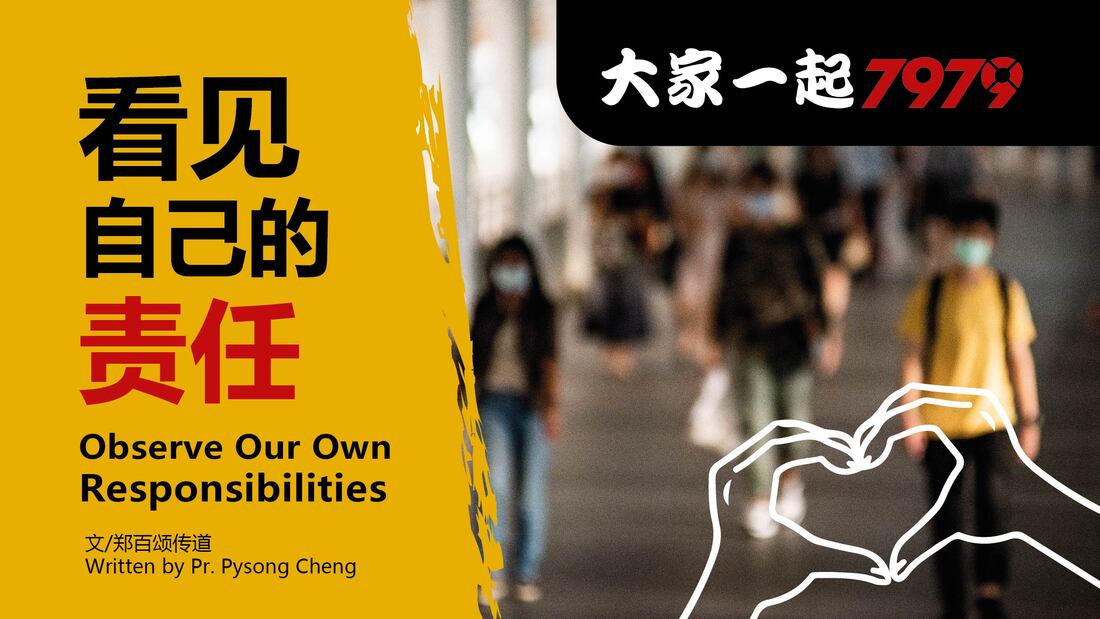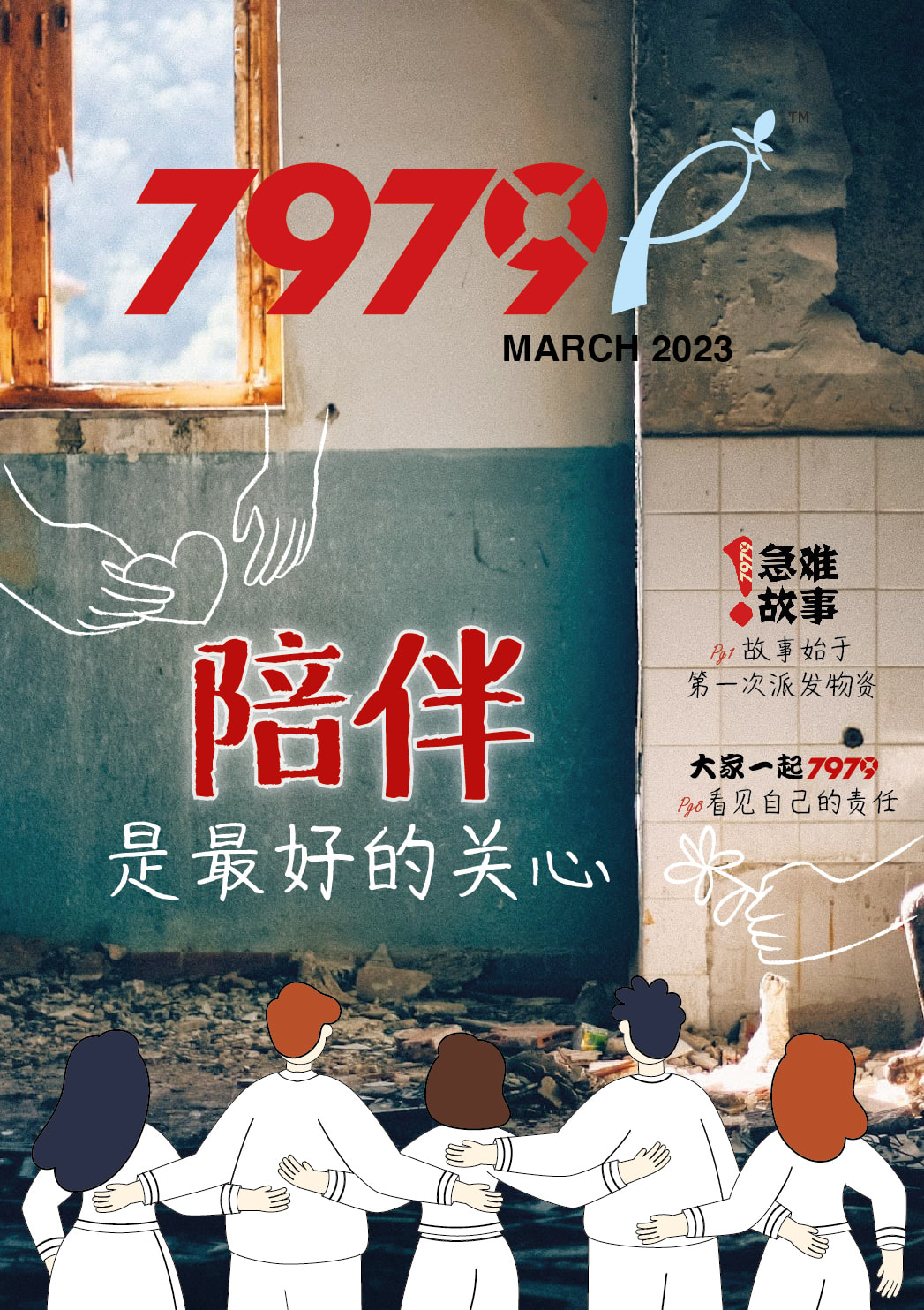|
CLICK HERE FOR ENGLISH VERSION
As we enter into post pandemic era, many are trying to return to pre pandemic normalcy, trying to seize every opportunity to catch up with what they had lost. Hence, vehicles on the road are getting more, malls are crowded with people, more plans for overseas travels or some are back from overseas to visit their families and relatives, the flows of people seem never ending. Everyone has different goals to pursue in a new year. The most precious thing of all is we did not miss any opportunity to serve with love and care during the pandemic, no one we assisted was forgotten. In this era where nothing stays unchanged, we did not strive forward alone, but chose to support and accompany the needy. The recent flood that caused by the Monsoon rain, has become a regular annual incident, people are getting used to it. Disaster came in second, nobody managed to secure their own premises. No matter natural disaster or human cause disaster, disaster in this world would never cease to exist; nevertheless, in these dark hopeless moments, we still able to see many heart-warming event taking places. When we are in good times, we seldom give thanks, we take things for granted and are not aware of what transpired or what we had enjoyed all these while? But when things turn bad, many will ask, why does God allow these things to happen to me? Our humanity is being tested in times of ups and downs. How should we exert our influence in mutual support and keeping a heart of compassion? A pastor told me that after the pandemic, there was only 40% of his congregation return to their church service. He kept thinking of ways to encourage them to return to their church service. One day, it dawned upon him that the number of people who received Manna Food bags were almost the same as those who absent from their church service. He felt relieved immediately, and realised that this is the reason why the church need to care for and serve their community. In the book of Hebrews in the Bible, Chpt. 10:25 “not forsaking our own assembling together, … “is commonly use to encourage Christians to return to church’s service. However, I prefer verse 24 over verse 25, which stated “Let us think of ways to motivate one another to acts of love and good works.” Because, not everyone can accommodate church services schedule, but everyone can do good works with love! After the pandemic, we should be more appreciative of our lives and grab the opportunities, from individual crisis, poor families’ needs or major disaster of a community, we should be able to see our responsibilities in others need. In post pandemic era, You and I have our own responsibilities to observe. 迎向后疫情年代,大家都在尝试回到之前正常的生活,追赶错过的时间和机遇,把握可以自由行动的机会。因此,路上的车子逐渐增加、商场回流了人潮、外出旅行或回国探亲的人络绎不绝。 新一年,每个人有不同追求的目标。最难得可贵的是,没有在疫情期间疏忽所付出的爱心和关怀的举动,没有忘记曾经帮助过的人。在这瞬间万变的年代,不是自己先拼命向前迈进,而是扶助有需要的人,陪伴他们一起走。 最近的季候风而引发水患,似乎成为年度常事,人民亦见惯不惯。灾难骤然临到,连居所也无法安定。无论天灾或人祸,这世间的苦难虽然不断,却也处处彰显温情。在顺境时,我们很少感恩,很少问和留意自己经历哪些好事,享有哪些好处?但在逆境时,很多人会问,上天为何偏偏让自己遇到悲伤的事?在这顺和逆之间,正是考验我们的人性:如何发挥互助与悲悯的胸怀。 有一位牧师告诉我,疫情之后,回来教会聚会的人数少了约40%。他不断思考鼓励他们回到教会的方法。有一天,他发现过去在行动管制期间,曾经以食物包帮助的人数,与缺席实体聚会的人数不相上下。他豁然开朗,这正是教会应该继续关怀社会、服务社区的因素。 圣经<希伯来书>10章25节“你们不可停止聚会......” 被广泛使用于劝勉基督徒要回到教会聚会。但我更喜欢 24节 “又要彼此相顾,激发爱心,勉励行善” 。因为,不是人人都能配合出席聚会的时间,但人人都能以爱心行善! 在疫情后,我们应更珍惜生命,也更把握时机,从个人的急难、贫穷家庭的需要,至社会的重大灾难,在他人的需要上看见自己的责任。 后疫情时代,你我有责。
0 Comments
Leave a Reply. |
Details
下载全本杂志,请点击
|
||||||||||||
Holistic Integrated Services Berhad
36-B(2nd Floor), Jalan Anggerik Vanilla R31/R,Kota Kemuning, 40460 Shah Alam, Selangor, Malaysia.
TEL: +603-5122 1130 FAX: +603-5121 0717
Account No: Maybank 5-12781-01259-9
36-B(2nd Floor), Jalan Anggerik Vanilla R31/R,Kota Kemuning, 40460 Shah Alam, Selangor, Malaysia.
TEL: +603-5122 1130 FAX: +603-5121 0717
Account No: Maybank 5-12781-01259-9
Copyright © 2019 by Holistic Integrated Services Bhd



